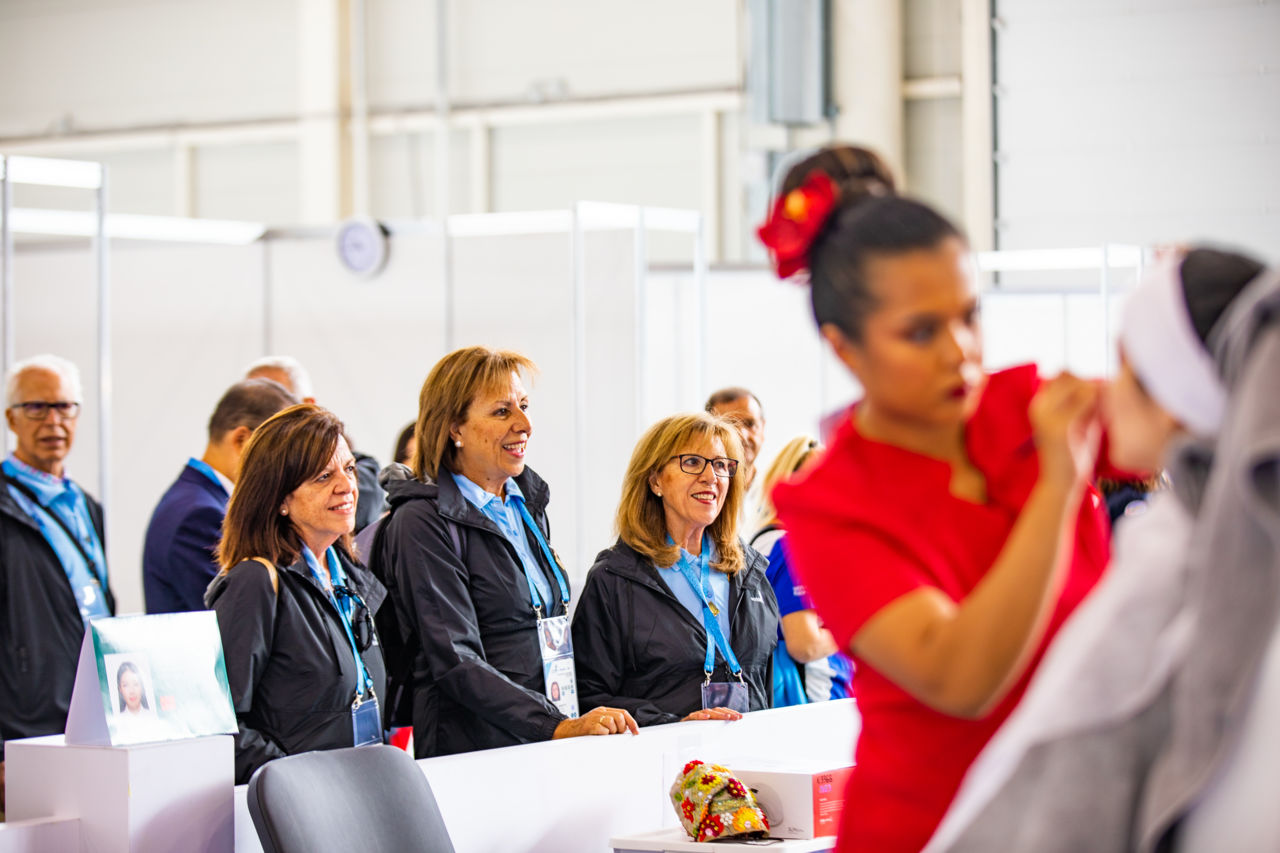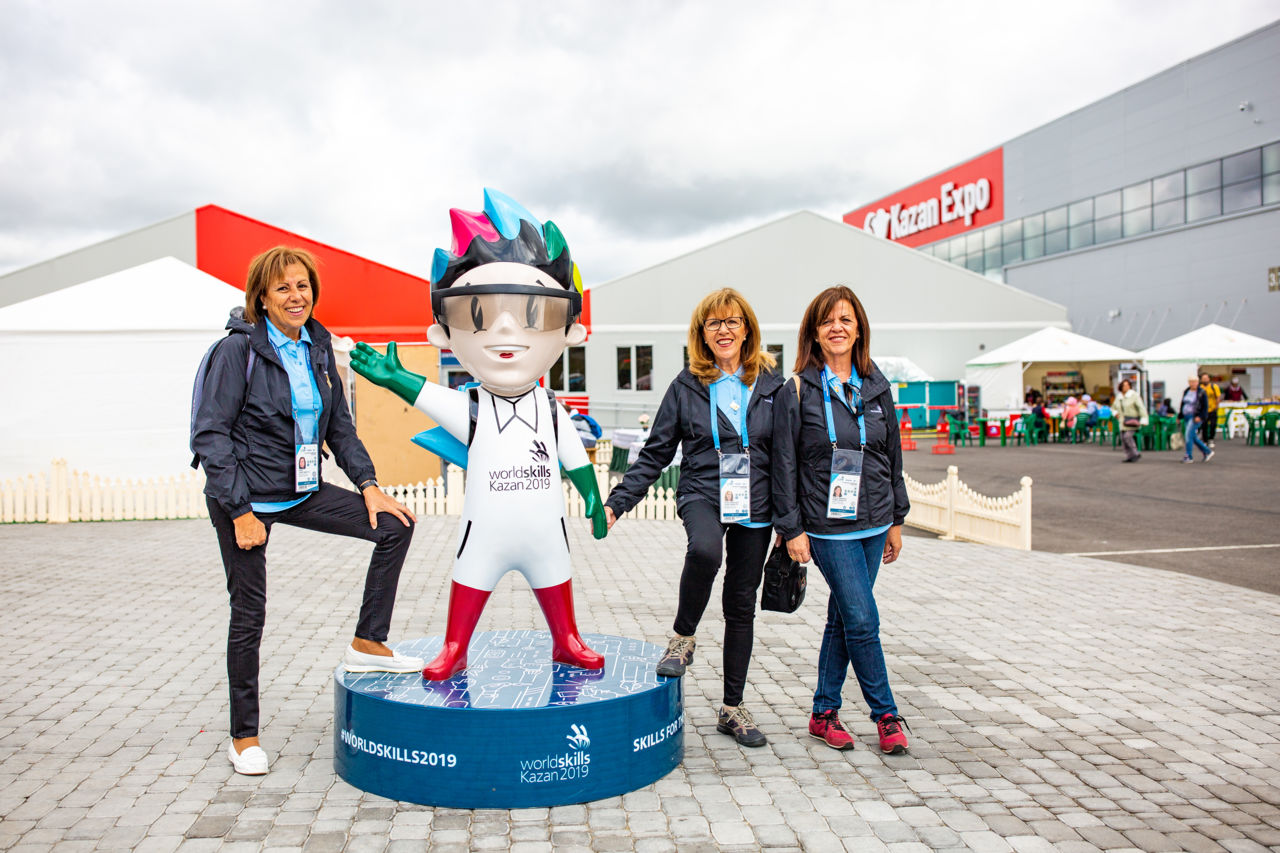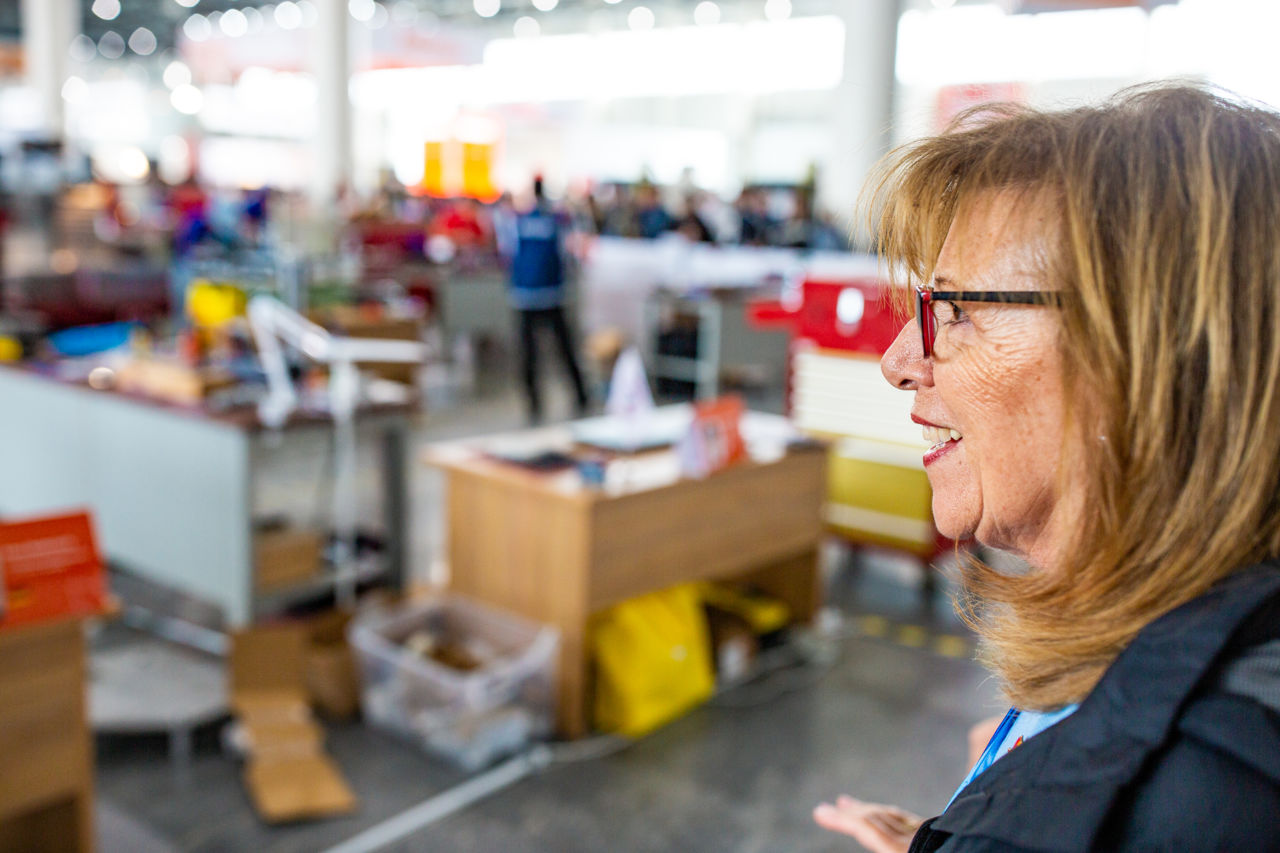26 August 2019
Daughters of WorldSkills founder Albert Vidal arrive in Kazan for Closing Ceremony
In the story of WorldSkills there are two Palomas, the Spanish word for a dove.

In the story of WorldSkills there are two Palomas, the Spanish word for a dove.
One is Virgen de la Paloma, the Madrid training college where the first international competition was held nearly 70 years ago.
The other is the middle daughter of Francisco Albert Vidal, the driving force behind what was known then as the International Apprentice Competition, and now recognized throughout the movement as the Father of WorldSkills.
Albert Vidal was also the father of three daughters. When the time came for his wife to give birth for the second time, the doctors recommended she did so at their home at the training college.
And ever since, Maria Ángeles, as she was christened, has always been called “Paloma”, in recognition of her birth place.
It’s a story she has told many times but Paloma and her sisters, Maria Francisca and Maria Remedios, never tire when it comes to talking about their father and his boundless enthusiasm for youth and vocational education.
For WorldSkills Kazan 2019, all three have been invited to Russia, along with their husbands, to see how his other baby has grown, and to witness the crowning moment of the Competition, the Albert Vidal Award for the best overall competitor.
“I get goosebumps,” says Paloma, talking about what the competition has become. “We are very excited and it’s a great source of pride for us.”
Albert Vidal arrived in Madrid in 1946 as an instructor at the college, and conceived of the competition as a way to motive young people to become apprentices in a time when skilled workers were in desperately short supply.
The first international contest took place in 1950, when young apprentices from neighbouring Portugal participated.
In 1953, along with Morocco and Switzerland, the first competitors from France and the UK made their way to Madrid. From then on it grew steadily, until today there are 82 Member countries and regions.
Albert Vidal remained in charge of the Madrid Competitions and then headed the international movement until a year before his death in 1993 when poor health forced him to step down.

The three sisters are a unique living record of the early days of WorldSkills. “I remember when I was very little going with my mother and sisters to the hotel to welcome the Portuguese,” Paloma says of the 1950 contest.
The sisters all have memories of the hard work involved, with their father often working late at night and over weekends to ensure the success of the competition.
Their mother would work with him, and when their parents travelled, they would be cared for by grandparents.
But they never felt neglected. “We got used to it,” says Paloma, who went on to work with her father when she was 17. “And we never felt we were missing out.”
Their father, they say, was devoted to the cause of youth. “Both at a professional and a personal level, he would always meet everybody and help everybody in all aspects,” says Maria Francisca.

He would be pleased to see the scale of the 45th competition they say, but might be surprised to see that it had now reached Russia.
They will be attending the Closing Ceremony at the Kazan Arena Stadium, to witness the presentation of the Albert Vidal award.
Their visit to Kazan is a reminder of how important their father was to the development of WorldSkills. “I have come to this competition because of him,” says Paloma.
“Here, he is looking down on us.”